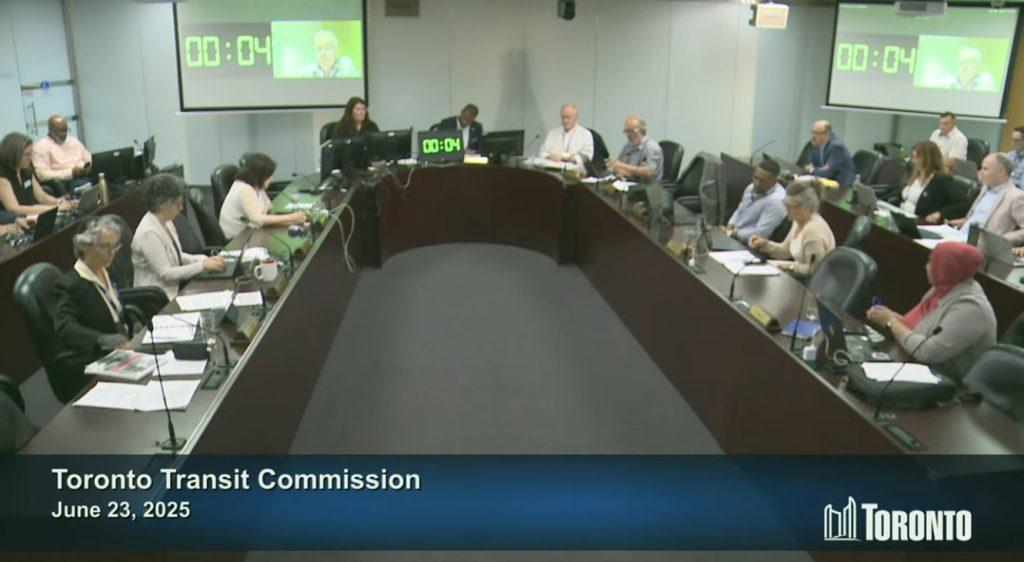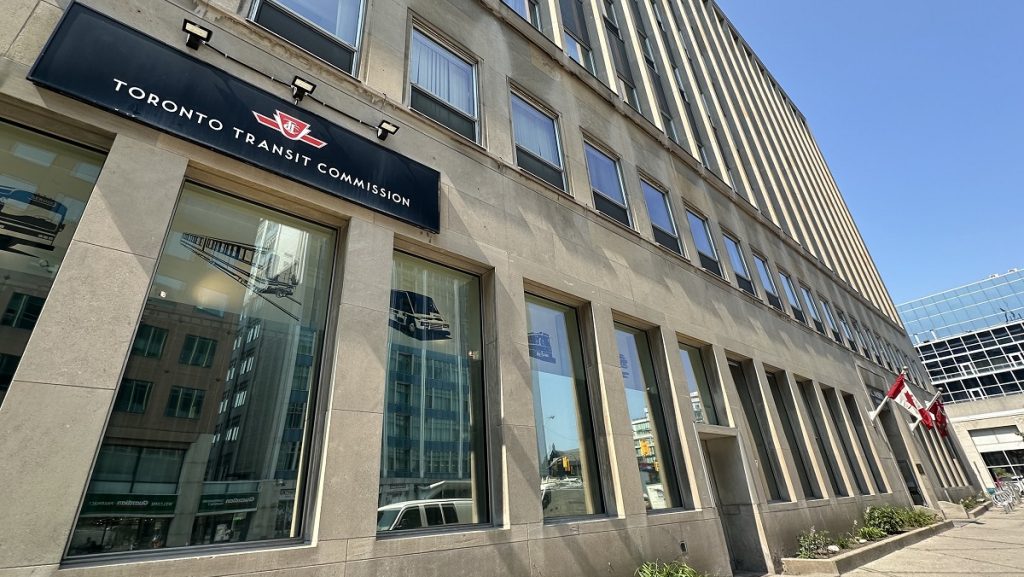The Toronto Transit Commission (TTC) has postponed a pilot project for installing platform-edge safety doors (PEDs) at TMU (Dundas) station. This decision came after TTC staff proposed the plan to enhance safety at the station, which has faced challenges with pedestrian intrusions and overcrowding. The board members will instead focus on determining future installation priorities for safety doors at various stations and will mandate that all new stations include PEDs.
Concerns regarding the pilot project's funding, particularly in light of the substantial costs involved, were raised during the meeting. A report submitted to the board indicated that retrofitting 74 sets of platforms at 70 subway stations along Lines 1, 2, and 4 could amount to an estimated $4.1 billion if implemented throughout the system. The average cost for these installations is projected to be between $44 million and $55 million per set of two platforms. However, alternative safety systems may offer lower costs per station.
During the board's discussions, residents presented testimonies emphasizing the urgent need for safety measures. TTC passenger Nicholas Christou recounted a distressing incident where he had to assist someone who had jumped onto the tracks and became trapped. Christou stressed the potential dangers in such scenarios, stating that the TTC must take more action to prevent injuries. Similarly, Rebeena Subadar, a member of the advocacy group TTCriders, voiced support for the pilot project, describing it as a 'brilliant idea.' She highlighted the safety risks associated with crowded platforms, especially during service disruptions.
While many board members expressed their support for the implementation of PEDs, they voiced concerns regarding the financial implications and the need to allocate resources to various safety and accessibility upgrades within the transit network. Board member Julie Osborne emphasized the importance of a realistic approach to funding, given the TTC's existing obligations to invest in new vehicles and accessibility enhancements.
Councillor Josh Matlow opposed the referral of the project to a sub-committee, fearing it would lead to delays in action. TTC chair Jamaal Myers acknowledged the need for further consideration, suggesting that different stations might require different safety solutions to optimize costs. He called for a decision on the implementation of PEDs, acknowledging that discussions around this topic have spanned over two decades.
The projected cost of $4.1 billion reflects a significant increase from a previous estimate of $1.23 billion. Despite the higher costs, the business case for the project outlined various cost-saving benefits, including potential annual savings of up to $127.8 million through reduced injuries and delays, as well as savings related to emergency response and workplace insurance claims.
As of 2025, TTC staff noted nearly 220 incidents of individuals entering subway tracks. The report indicated that if funding is secured over a 20-year timeline, with construction commencing in 2026 during off-peak hours, the benefits could outweigh the total costs by 2062, which is 14 years following the completion of the entire build-out.
In terms of effectiveness, the report asserted that full-height PEDs were rated highest among various safety methods evaluated, with alternatives such as partial-height doors and sensor-based systems ranking lower. The study indicated that a tailored approach is necessary, as no single solution fits all stations due to different configurations and usage patterns.
The topic of PEDs has been an ongoing concern since 2009, driven by safety issues including suicide prevention and preventing individuals from being pushed or falling onto tracks. Renewed calls for safety measures followed incidents in 2022, including a case where a woman was pushed onto the tracks. The urgency surrounding this topic continues to resonate as the TTC navigates the complexities of safety implementation.












